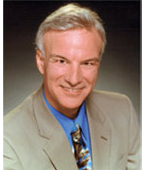
Host: Anti-Aging Psychologist Dr. Michael Brickey
Guest: Henry Alford
Broadcast and podcast on webtalkradio.net. The podcast is also below.

Age brings the opportunity for wisdom but doesn’t automatically bring wisdom. Henry Alford, a pundit and humorist who writes for the New York Times, Vanity Fair, and The New Yorker, set out seek the wisdom of older people-as he puts it “while they are still on this earth.” The result was his newest book, How to Live: A Search for Wisdom from Old People. Today he shares the insight, wit and wisdom from his quest.
When it comes to interviewing and writing, frankly, I’m more used to the left brain approach of talking about data and clinical experience. But from doing psychotherapy, life coaching, and public speaking I’m also keenly aware of the power of stories. Exploring stories and biographies with Henry Alford is a refreshing shift to the right brain for exploring wisdom. Indeed wisdom is such a difficult concept to define, that it is especially well suited to narrative examples.
At first, I was feeling a little envious of Henry as he gets to interview experts on wisdom. Then I realized interviewing experts is exactly what I do every two weeks on Ageless Lifestyles. The principle difference is that Henry Alford interviews them in person and I interview them by phone.
So what did we learn about wisdom? Perhaps it’s like good art-you know it when you see it. Certainly, Henry provided wonderful examples of wise people. Various definitions of wisdom include: a mix of erudition, judgment, making the best choices, cleverness, and spiritual wisdom. A classic example is King Solomon smoking out the real mother by ruling a disputed baby should be cut in half. Another classic example of wisdom was when a Gentile told Hillel he would convert to Judaism if he could explain the Torah while standing on one foot. Hillel replied, “That which is hateful to you, do not do to your neighbor. That is the whole Torah; the rest is commentary.”
In our interview Henry Alford zipped through his five traits that characterize wisdom.
- His first is reciprocity. I think by reciprocity he not only refers to appreciating give and take, but also foreseeing the many domino effect that an action or lack of action can have.
- His second trait is nonattachment. This is the ability to step back and objectively see things with perspective. Indeed, I find perspective is the key to so many things such as emotional healing, progress in psychotherapy, turning pain into humor, and solving most problems. Nonattachment is what enables us to let go of pain and self-interest so we can see things from a different viewpoint.
- His third trait is doubt. Doubt helps with perspective. Ironically, some of the leaders he admired led causes and seemed to have little doubt. Abraham Lincoln seemed to be a president who wrestled with doubt. Presidents like Ronald Reagan and Lyndon Johnson seemed to show little doubt.
- Henry Alford’s fourth trait is discretion. This involves using nonattachment and perspective to appreciate how actions affect others and trying to do things in a way that does the most good and as kindly and considerately as possible.
- His fifth trait is working for the common good. This distinguishes those who are bright and clever but merely acting in self-interest, from those who are helping a larger cause.
Why did Henry Alford zip through the five traits? Because his style and contribution isn’t an academic definition but as the said the “take away,” for him is the power of biography.
Henry Alford’s website is www.HenryAlford.com. Dr. Brickey’s other websites are www.DrBrickey.com and www.Anti-Aging-Speaker.com.
